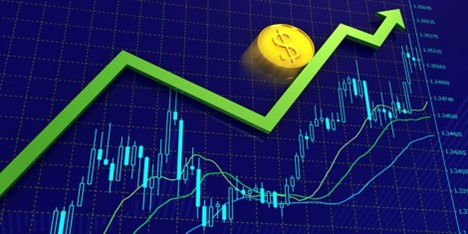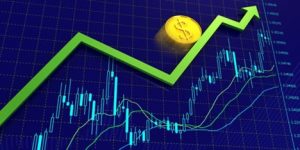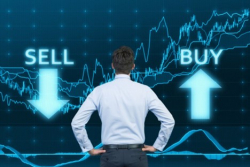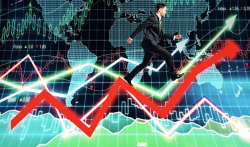
How to avoid forex trading scams
There is no doubt that the Forex market is the biggest financial market on the planet. The average daily trading volume is more than $5 trillion. This also raises the chances of Forex scams by means of secret trading formulas, forex signal sellers and forex bots that do trading for you. With a volatile currency change in the world market, forex scams are becoming more frequent than ever. Losing our cash to forex scams is the last thing we would want to happen when travelling abroad. Forex scams involve fake trading in forex exchange. This happens when you lose the chances of getting back the cash you invested from the firm with whom you got linked for forex trading.

Here are some of the most comment forex trading scams:
Unlicensed forex dealer or broker
Retail forex & CFD trading is regulated in some parts of the planet by regulatory authorities. The UK has the Financial Conduct Authority (FDA), Cyprus has the CYSEC, CMA in Kenya, FSCA in South Africa, and ASIC in Australia.
Unlicensed brokers operate brokerage companies and provide trading platforms to the public and when a trader pays money into the account, he is not capable of withdrawing it.
As a rule of thumb, before patronizing any forex broker anywhere on the planet, you should go to the match regulators site and check for a list of licensed forex brokers in your country.
If CFD & forex trading is illegal in your country, then you should reject trading through forex brokers. In case it is a grey area, as in, there is a deficiency of regulation, but it is not illegal, and you still want to trade, in that case reject any brokers that are not multi regulated.
Signals scam
Another forex scam is sometimes the signals scam. Here you must pay a subscription to get random signals that will have an extremely different track record from the one you saw before your subscription. It begins with the scammer posting fake track records and false profit statements that a five-year-old can photoshop. Then, when people begin subscribing to this signal provider, suddenly, the market becomes too random to be guessed, and the results go south. Providing signals is very hard due to the hard nature of timeframes, risk profiles, and even time zones.
Promises of bonuses and rewards
Forex markets can be highly volatile and there is a risk of losses with margin trading. That is why brokers are needed by big regulators to pup risk statements on their sites to warn potential traders about the dangers they face trading CFDs & Forex. It is, therefore, a red flag if a broker is seen to welcome bonuses such as a $50 bonus on account opening; risk-free trading, or eighty percent returns on purchasing trading signals.
These promises of rewards are red herrings meant to divert the trader from doing necessary due diligence. Most of the big regulators don’t permit brokers to provide any offers.
Managed trading account
A forex trader who is either too busy or inexperienced to trade may open a trading account and hand it over to a professional account manager to trade on his behalf. These experts charge fees for their services.
Scammers have also capitalized on this to offer to handle accounts for traders and end up cheating them. They could begin trades that are not in the client’s best interest and then run away with the client’s money.
Traders should check the account manager’s history to find out his success rate in the past, and look at the risk management technique.
The account manager also must be licensed to run by the match authorities.
When considering the services of any internet broker, ensure to double-check whether his commission or fees are clearly mentioned on the website. Other than this the procedure offered to let you withdraw your money should be outlined as well in the accessible area of the website. If the website you have logged on makes it hard to browse information it is more likely to make obstacles in the way of your fund withdrawal.
Social media gurus
Most motivational forex videos and adverts trading online generally show cars, luxury Yachts, etc, and the intention is to make the viewer feel the guru/speaker acquired all those items from forex trading gains.
These famous gurus don’t talk about the downsides of trading and focus only on the benefits. Some of them operate and work combined with unlicensed brokerages and end up defrauding investors.
Market regulators around the planet have mandated forex brokers to put up risk statements on their site. This statement highlights the risks traders face when trading and some regulators even went a step further to mandate brokers to state the percentage of people who lose cash trading with them. This is generally found at the base of the broker’s site page.
Why you should educate yourself to reject trading scams
The single most vital thing a trader can do to reject being scammed is to learn to trade on the Forex market and know the market correctly. A beginner trader must make sure that he/she has picked the best brokers. Traders should make use of demo accounts and learn to earn long term profits first before trading for real. A starter trader should forever be critical in their approach, checking statistics and making their own functions that they have tested and had success with a demo account first.
The best rule of thumb in the forex market, as with other investment areas, is that if it sounds too good to be true, such as yearly returns of more than a hundred percent, for example, it is almost definitely a scam. Take sufficient time to make decisions before jumping into an investment. Weigh up the pros and cons and perform your research.
End words
Forex trading is not a scam. It is the best way to earn profits – if it is undertaken in the best way.
Unluckily, because it is so unregulated, forex trading is a breeding ground for interesting scams that seek to take advantage of inexperienced and new traders.







